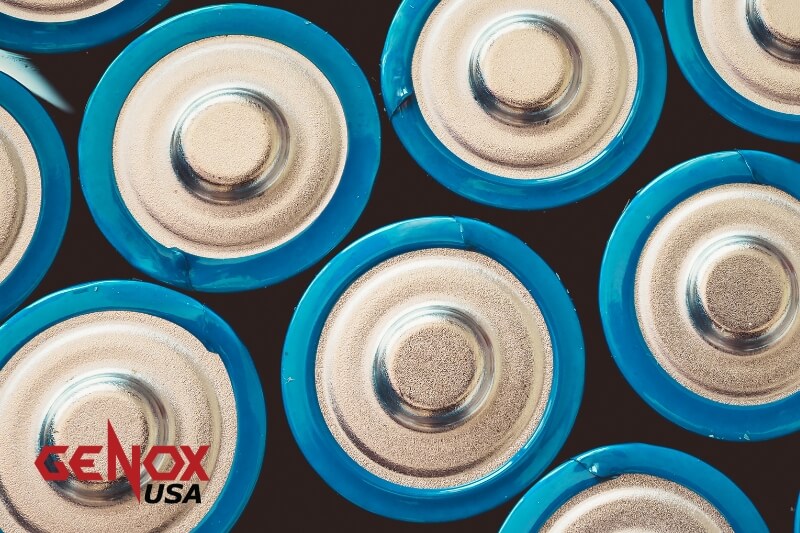A Comprehensive Guide to Lithium-Ion Battery Recycling
In the age of electric vehicles and rechargeable devices, lithium-ion batteries have become the backbone of modern technology. As these batteries power our electronic devices and electric vehicles, questions surrounding their end-of-life management become increasingly crucial. Today, we’ll delve into the world of lithium-ion battery recycling, answering the fundamental question, “How do you recycle lithium-ion batteries?”
Can Lithium-Ion Batteries be Recycled?
Lithium-ion batteries, also known as Li-ion batteries, are indeed recyclable. Unlike traditional alkaline batteries, lithium-ion batteries contain valuable materials such as cobalt, nickel, manganese, and other metals that can be recovered and reused. However, recycling lithium-ion batteries poses unique challenges due to their complex composition and the potential environmental impact of mishandling.
One of the primary reasons for recycling lithium-ion batteries lies in the conservation of valuable resources. These batteries often contain rare and finite materials, and recycling allows us to extract these resources responsibly, reducing the need for new mining activities and contributing to a more sustainable supply chain.
Recycling Lithium-Ion Batteries
Recycling lithium-ion batteries is a multifaceted process that involves several crucial steps. The journey begins with proper collection at dedicated recycling centers, preventing lithium-ion batteries from entering landfills. From there, the batteries are transported to specialized facilities.
The recycling process typically includes discharging the remaining energy, dismantling the battery pack, and separating the different components. Advanced recycling methods focus on efficiently extracting materials like cobalt and nickel, manganese, minimizing waste, and reducing the environmental impact of the recycling process.
The Environmental Impact of Lithium-Ion Battery Recycling
Understanding the environmental impact of lithium-ion battery recycling is pivotal to evaluating its sustainability. While lithium-ion batteries contribute to cleaner energy storage and transportation, their disposal without proper recycling can pose environmental risks. Elements like cobalt and nickel, integral to these batteries, are finite resources, and mining them has ecological consequences.
Effective recycling methods play a crucial role in mitigating these impacts. By maximizing the recovery of valuable materials, reducing waste, and minimizing the environmental footprint of the recycling process, we contribute to the sustainable management of these potent yet recyclable energy sources.
How GenoxUSA Can Help Recycle Lithium-Ion Batteries
GenoxUSA is a leader in providing sustainable solutions for the recycling of lithium-ion batteries. Our comprehensive recycling program is designed to address the unique challenges posed by lithium-ion batteries, especially those from electric vehicles.
Expertise in Electric Vehicle Battery Recycling
With the rising prominence of electric vehicles, the demand for electric vehicle battery recycling has never been higher. GenoxUSA’s expertise in recycling large-scale electric vehicle batteries ensures that these complex systems are dismantled and processed efficiently and safely, contributing to the sustainability of the electric vehicle supply chain.
Advanced Recycling Methods
GenoxUSA employs cutting-edge recycling methods that align with the latest advancements in battery recycling technology. By leveraging innovative techniques, we maximize the recovery of valuable materials, minimize environmental impact, and contribute to the responsible disposal of lithium-ion batteries.
Some of the key advantages of GenoxUSA technology include not having to fully discharge the batteries, no hazardous wastewater to have to deal with, low power consumption compared to other recycling processes.
Environmental Responsibility
We prioritize environmental responsibility throughout our lithium-ion battery recycling program. From safe collection and transportation to advanced recycling methods that reduce the carbon footprint, GenoxUSA is dedicated to minimizing the environmental impact of recycling these batteries.
The Future of Lithium-Ion Battery Recycling
As technology advances and battery types evolve, the future of lithium-ion battery recycling holds exciting possibilities. Innovations in recycling methods, such as those developed by the Argonne National Laboratory, are paving the way for more efficient and sustainable processes.
Argonne’s advancements, including the ReCell Center, focus on creating closed-loop systems for battery recycling. By developing methods to recover and reuse materials in lithium-ion batteries, these initiatives contribute to the creation of a circular economy, reducing our dependence on raw materials and minimizing waste.
Contact GenoxUSA to Learn More About Our Lithium Ion Battery Recycling Program
The question of how to recycle lithium-ion batteries is crucial for a sustainable future. GenoxUSA not only answers this question but also provides a comprehensive solution. By participating in our lithium-ion battery recycling program, you contribute to a circular economy, support the electric vehicle supply chain, and play a vital role in the responsible disposal of these powerful yet recyclable energy sources.
Join us in unlocking sustainability through lithium-ion battery recycling. You can become a part of the positive change for our planet. As technology advances, our commitment to environmental stewardship ensures that we stay at the forefront of sustainable practices, contributing to a cleaner, greener future for generations to come. Together, let’s power a sustainable tomorrow through responsible lithium-ion battery recycling.

